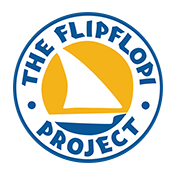Let's demand change - sign the petition today!
By Davina Ngei and James Wakibia
Recently, the Daily Nation published an in-depth investigation into the #toxicflow and poison killing one of Africa’s great lakes - Lake Victoria (Nam Lolwe). Was the news shocking? Yes. Unexpected? No!
The truth is, we dispose of so much waste every day paying little attention to where it ends up - street corners, parks, rivers, lakes, oceans.
Photo Credit: Jagpal Sandhu
But as our waste piles up, we can no longer pretend that our cities and our countries aren’t choking on their own filth.
But who or what is to blame? Is it our lack of awareness on waste management issues, limited infrastructure capable of handling our growing waste, the poor quality products that are not biodegradable or recyclable, weak policies or a lack of enforcement that have allowed this problem to grow without a solution?
Whatever your school of thought is, it is evident that we all have a part to play in putting a stop to the impending catastrophe before it is too late to fix the damage to our health and ecosystems.
But this is not just Kenya’s problem!
For centuries, Lake Victoria has been central to the culture and livelihoods of tens of millions of diverse people, spanning 3 countries - Kenya, Tanzania, and Uganda. Numerous rivers and streams from around the region flow into Lake Victoria, which then feeds the Nile - a river that flows through 11 countries.
Photo Credit: Jagpal Sandhu
The magnificence of this shared ecosystem cannot be understated - we are all interconnected.
However, it means that as our ecosystems share fresh water and nutrients, they also share waste - chemical runoffs, heavy metals, sewage, and plastic trash! Pollution in Kenya does not remain in Kenya but flows across East Africa. Recently, I picked up an empty plastic bottle on the Nakuru highway that had traveled all the way from Jinja, Uganda - nearly 400 km away.
How then can we solve such a complex and far-reaching problem?
The answer is simple - collective and collaborative action! As the East African community, it is imperative that we come together and create the policies and frameworks needed to tackle this problem definitively.
If we don’t act now, our children and their children will no longer recognise this polluted world; the very ecosystems and animals that we survive on will cease to exist (scientists give Lake Victoria 400 years to completely dry up and disappear).
Photo Credit: Jagpal Sandhu
While it is great to see that some countries have passed bans on widely mismanaged waste (Kenya, Rwanda, Tanzania, and Uganda have all banned single-use plastic bags), we still see plastic and other waste polluting our rivers, lakes, and oceans, piling up on our roads and in our children’s playgrounds.
Now more than ever, the East African Community needs to come together and take a strong, leadership stance on this crucial issue. By implementing singular bans on widely mismanaged products and compelling businesses to stop manufacturing non-recyclable items, East Africa can set the lead for the rest of the world to follow.
Let’s demand change - sign the petition today!




